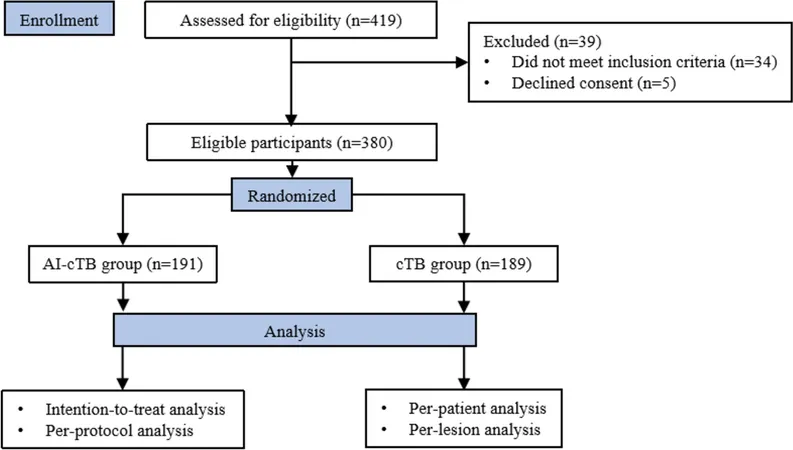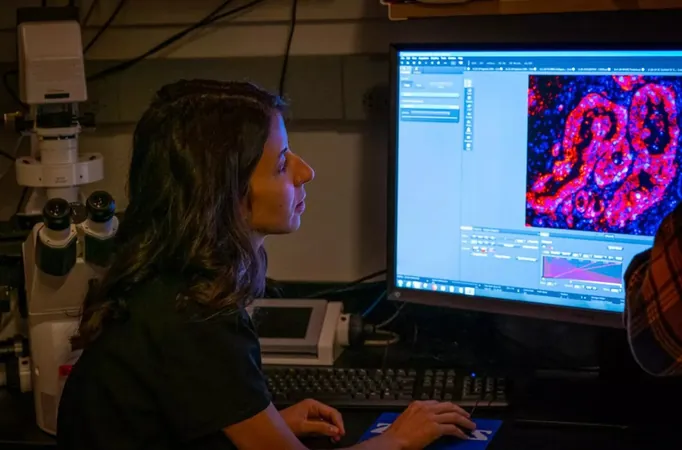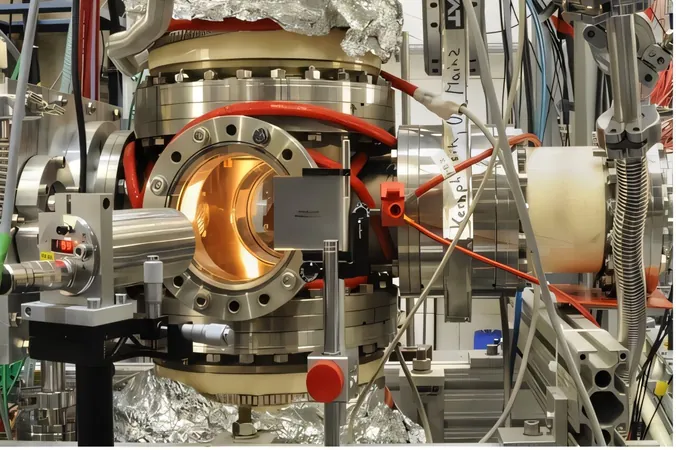
Revolutionizing Prostate Cancer Diagnosis: AI-Enhanced Targeted Biopsy Outperforms Traditional Methods in Groundbreaking Study
2024-11-13
Author: Daniel
Introduction
Prostate cancer (PCa) stands as one of the most prevalent malignancies among men worldwide, making effective diagnosis essential. As advancements in medical imaging evolve, the significance of prostate biopsy in diagnosing, risk-stratifying, and planning treatment for PCa continues to rise. The emergence of cutting-edge techniques, particularly multiparametric magnetic resonance imaging (mpMRI) and targeted biopsy methods, have transformed the landscape over the past decade.
Current Diagnostic Techniques
Current medical guidelines advocate for mpMRI before biopsy to maximize diagnostic accuracy. Targeted biopsy strategies include cognitive fusion-targeted biopsy (cTB), in-bore MRI-targeted biopsy (MRI-TB), and MRI-transrectal ultrasound (TRUS) fusion-targeted biopsy (FUS-TB). Among these, cTB has grown in popularity due to its straightforward application, requiring no extra financial resources or extensive training. However, the interpretation of MRI images heavily relies on the expertise of individual operators, leading to notable interoperator variability. This variability can result in missed opportunities for identifying aggressive PCa, aggravating the need for innovative diagnostic solutions.
Recent Breakthroughs
Breaking through this barrier, a recent randomized controlled trial (RCT) investigated the integration of artificial intelligence (AI) into cognitive-targeted biopsy procedures to enhance the accuracy of PCa diagnosis. Conducted at Peking University First Hospital, this prospective study involved 380 men who were randomly assigned to either AI-assisted cognitive biopsy (AI-cTB) or routine cTB, aiming to discover which method yielded superior rates of clinically significant prostate cancer (csPCa) detection.






 Brasil (PT)
Brasil (PT)
 Canada (EN)
Canada (EN)
 Chile (ES)
Chile (ES)
 España (ES)
España (ES)
 France (FR)
France (FR)
 Hong Kong (EN)
Hong Kong (EN)
 Italia (IT)
Italia (IT)
 日本 (JA)
日本 (JA)
 Magyarország (HU)
Magyarország (HU)
 Norge (NO)
Norge (NO)
 Polska (PL)
Polska (PL)
 Schweiz (DE)
Schweiz (DE)
 Singapore (EN)
Singapore (EN)
 Sverige (SV)
Sverige (SV)
 Suomi (FI)
Suomi (FI)
 Türkiye (TR)
Türkiye (TR)